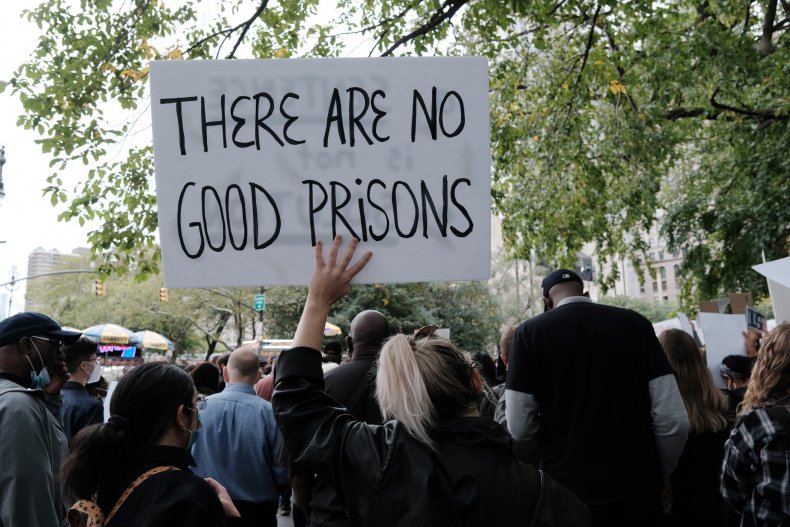Corrections Chief Testifies Prisoners Have Greater Access to Healthcare Than He Does
Arizona Corrections Director David Shinn testified Tuesday in a trial concerning the medical and mental health care provided to incarcerated people and said they often have better care than people not in prison, including himself.
The trial is happening after a judge threw out a 2015 settlement, concluding that the state hadn't made improvements agreed upon in the settlement. Arizona has received years of complaints about poor healthcare in the prison system, including a $2.5 million fine for not complying with the settlement.
According to The Associated Press, lawyers representing Arizona prisoners are requesting that U.S. District Court Judge Roslyn Silver takes over healthcare operations in the state's prisons, and appoints an official to monitor the services.
The prison healthcare operations are allegedly poorly supervised and understaffed, leading to some inmates being denied care and necessary medications. They also are alleged to fail to provide adequate mental health services and pain management for prisoners who suffer from cancer or other diseases.
While the state has denied these allegations, a court-appointed expert concluded previously that understaffing, insufficient funds and privatized healthcare services prove to be barriers to improving the quality of care in Arizona's prisons.
Arizona's current prison healthcare contractor could be subject to a $500 sanction for each month they are found to be non-compliant with the settlement.
For more reporting from The Associated Press, see below.

"They often have greater access to care than I do as a private citizen," Shinn said of prisoners.
The appointed official would run medical and mental health services there, ensure prisons have enough health care workers and reduce the use of isolation cells, including banning their use for prisoners under age 18 or those with serious mental illnesses.
The Arizona Department of Corrections, Rehabilitation and Reentry has denied allegations that it was providing inadequate care, delayed or issued outright denials of care and failed to give necessary medications. Its lawyers said the prisoners can't meet key elements in proving their case — that the state was deliberately indifferent to the risk of harm to prisoners and that the health care problems occur across the state-run prison system, not just a particular prison.
The case challenges health care for the more than 27,000 people incarcerated in state-run prisons, not in the private prisons where the state houses 7,500 other people.
Shinn, a former federal prisons official appointed to the state post by Gov. Doug Ducey in October 2019, was grilled on shortages of corrections officers and health care workers at Arizona's prisons, expressed confidence in the companies that have provided health care services in state prisons and defended his agency's efforts to guard against COVID-19.
Shinn said he believes Arizona prisons — where at least 56 incarcerated people have been confirmed to have died from the virus and 80% of prisoners are vaccinated — are one of the safest places to be during the pandemic. For one stretch of time early in the pandemic, Arizona prisoners were barred from wearing masks, though that policy was reversed and incarcerated people were provided face coverings.
Attorneys for prisoners underscored that Arizona's previous contractor for prison health care services would have faced a $5,000 monthly sanction from the state for instances of non-compliance with the settlement.
Asked if the current contractor had reallocated health care staff to focus on compliance with the Arizona settlement, Shinn said he didn't have the data with him in court to answer that question.
Shinn said his agency was working with the state's prison health care contractor to improve its recruitment of health care workers. But he believes it's a myth that a certain number of health care workers must go to certain facilities.
He said the state can't force workers to move into communities that they may not find desirable. He also said the state was using telemedicine to care for incarcerated people in prisons away from urban areas.

